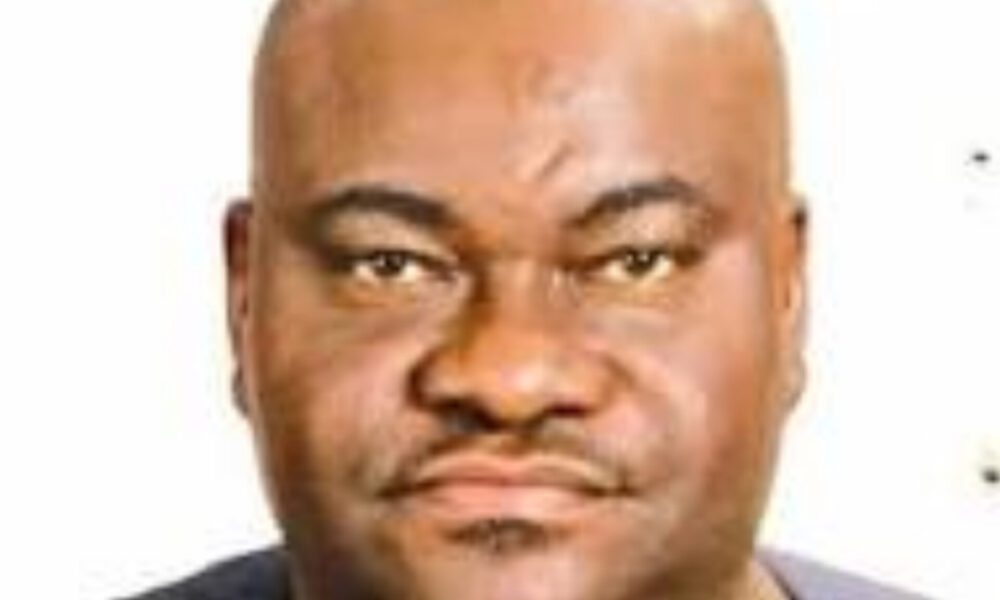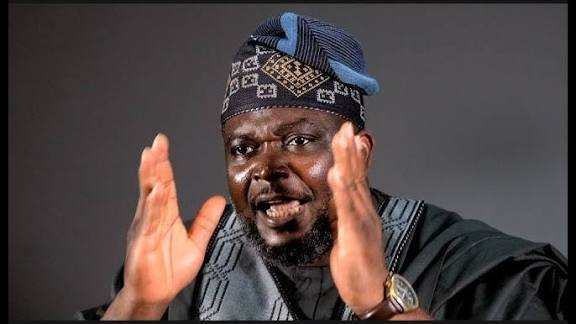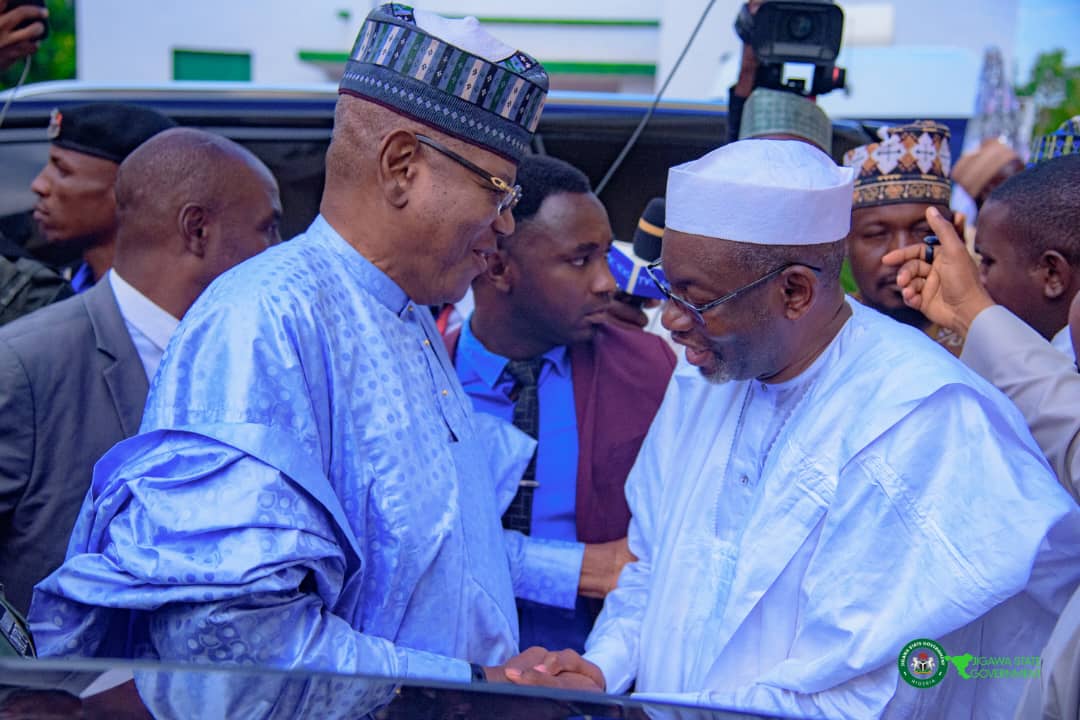By Tunde Olusunle
Back in 2005 or thereabouts, a good friend of mine shared with me the challenge his wife was encountering in her place of work in one of the uniform-wearing security services. His wife, he informed me, was being harassed by one of her bosses. According to him, the more senior officer was in the habit of extending invitations to his wife requesting that they meet in the “officers’ mess” of the organisation, or in some hotel. The lady in question resorted to making jokes of every invite by her potential predator. She would diplomatically retort by reminding the officer that his faith allowed him the latitude to take four wives. In her own case, however, her husband had only her as wife and was stuck with her. I would later be told that a signal was spontaneously generated from headquarters of the organisation where she worked, kicking her to Keffi in Nasarawa State.
Here was a nursing mother happily resident in Abuja with her family, who had responsibility for getting her children set for school everyday, dropping them off before heading to work. She had to redesign her routine which included waking up much earlier to get the kiddies set. Her husband hired a driver who took the young ones to school everyday and brought them back, while his wife headed to Keffi everyday, returning in the evening. As if that was not enough, the *oga at the top* in question ensured she was officially queried for “misconduct” and the document filed in her records at the headquarters. She subsequently lost seniority in her place of work, a development which can be most harrowing for workers in the uniform-donning services.

Banks, investment concerns and financial institutions have been known to impose unattainable credit targets on their employees, particularly the females, as part of their official responsibilities. They are compelled to cultivate plastic relationships with their customers, typically of the masculine gender. They are prodded to don provocative attires, see-through clothing which leaves nothing to the imagination, in their officially demanded seduction plot. Elsewhere, statutory entitlements are denied subordinates, typically the ladies, by their superior. Promotions are clamped upon, trainings opportunities for professional enhancement are denied. Except of course if such employees subscribe to being part of the luggage of the guys in the “VIP” cubicle on their local and foreign binges and rendezvous.
Sexual harassment has been particularly prevalent in our tertiary institutions over time. Pluri-dimensional instances have been recorded in our colleges of education, schools of nursing and midwifery, polytechnics, monotechnics and universities. It seems to feature more in public institutions than in private citadels many of which are physically overseen by their proprietors. The trend of solicitation for sex in exchange for good grades, has been most worryingly dominant overtime. It has provoked as much puzzlement as it has indeed triggered academic inquisitions, intent on unearthing the root causes of the affliction, especially within our own context. The media in recent weeks has highlighted multiple incidents of sexual harassment. You would imagine that with the advent of telephony and its infinite potentials, this trend would be on the downward slide. But no. Indeed, it seems to be on the ascendancy. Universities have been specifically notorious for perpetrating this unwholesome trend.
In March this year, a professor of law at the University of Calabar, (Unical), Cyril Ndifon, was arraigned at the Federal High Court in Abuja. There were complaints of sexual harassment against him by students of his institution. He reportedly requested a diploma student in his class to send ponographic images of herself to his telephone. The case was brought against Ndifon by the Independent Corrupt Practices and other related offences Commission, (ICPC). Last April, Mfonobong David Udoudum a lecturer in the general studies department of the University of Nigeria, Nsukka, (UNN), was captured in a video clip, allegedly harassing a female student. In this specific instance, Udoudom was videod in his underwear, implying that he was most probably on the cusp of amorous entanglement with the said student. Ndifon and Udoudom have been summarily suspended by their employers who restated their total abhorrence for sexual misconduct.
Back in 2018, a female student of philosophy at the University of Benin, (Uniben), alleged that one of her lecturers, Anthony Asekhauno, raped her. In her narrative, Asekhauno reportedly ensured she failed a course he taught, “logic,” three times. He allegedly took advantage of her on one of her visits to his office to discuss her serial failure of Asekhauno’s course. Three years later in the same university, a final year student accused a senior lecturer in the department of English of raping her. She posited that she went to submit her final year long essay when the lecturer locked his office and ran through her severally. A 2022 survey suggested that 14 very senior academics including four professors, were fired by the Obafemi Awolowo University, (OAU) and the University of Abuja, (UniAbuja). Such is the grand and global scale sexual carnivores prey upon the innocent in the university system.
A correspondence dated May 24, 2024 and signed by Yusuf Mallama Tuggar, Nigeria’s foreign affairs minister has been trending for a few days now. I’ve had cause in the past to interrogate the naivety and carelessness of the post-2015 leadership of Nigeria in managing official documents. Beginning from the Muhammadu Buhari era in 2015, before a sneeze exits the nostrils, its sound would be reverberating the streets. The Olusegun Obasanjo administration which I served, had much more tighter control of official communications which could not be found on the trays of *akara* sellers.
Tuggar’s letter is addressed to the Head of the Civil Service of the Federation, (HCSF), Folashade Yemi-Esan. It is headed: *Re: Official Complaint Regarding Sexual Harassment of Mrs Simisola Fajemirokun-Ajayi by Ambassador Ibrahim Adamu Lamuwa, Permanent Secretary, Ministry of Foreign Affairs.* The one page, three paragraph mail conveys the official letter forwarded to him by Mrs Ajayi, alleging she is being hunted by Lamuwa, a very senior government official and diplomat to wit. Tuggar notes in his letter that in view of the gravity of the allegation, he is constrained to request the intervention of the HCSF in the matter. The foreign minister assures that he will be available to assist the Office of the Head of the Civil Service of the Federation in the processing of the complaint, if his attention is required.
Tuggar wrote in response to a letter from *Falana and Falana’s Chambers,* which has the renowned attorney, Femi Falana as principal partner. The correspondence from Falana’s chambers was dated May 29, 2024 and signed by Adebayo Oniyelu and it detailed and dated several instances when Lamuwa attempted to take advantage of Fajemirokun-Ajayi. Specifically, she cited October 7, 2023 and November 10, 2023 as occasions Lamuwa made lurid overtures to her. In the course of the second incident, Fajemirokun-Ajayi stated that the foreign affairs permanent secretary baited her with a “life-changing getaway with him to Hong-Kong.” Lamuwa it is alleged, had previously threatened, harassed and intimidated female officers in the foreign affairs system, dropping the names of “stubborn” people from trips and postings. Falana and Falana Chambers prayed Tuggar to investigate Lamuwa for serial unethical conduct inconsistent with the expectations of a bureaucrat at his level.
There has not been, in my view, an incident of sexual indiscretion in the supposedly hallowed corridors of political authority so publicly and embarrassingly ventilated in recent times. That that is coming from the foreign ministry, Nigeria’s primary mirror to the whole wide world makes it all the more disturbing. Lamuwa’s profile presents him as a well-heeled diplomat. He read economics at the University of Maiduguri, (UniMaid) and joined the foreign service in 1993. He has had broad-based diplomatic training and experience through a 31-year career traversing Senegal, India, Hong-Kong, Canada, Saudi Arabia and Mauritania, among others. On paper, the diplomat who hails from Gombe State, is a gentleman. By some coincidence, he comes from a state which is next-door to Tuggar’s in Bauchi State.
Minister Tuggar has followed due process in escalating Mrs Ajayi’s complaint to the Head of Service, the *Numero Uno* civil servant. It is worth remarking that Tuggar has not played a *parapo* or *na mu, na mu* tune here by shielding his “countryman” from the North East from investigation. One is hoping here that there are not undercurrents in the relationship between the minister and the permanent secretary. Nigerians expect a very dispassionate and forensically thorough inquisition into this incident. This is very critical to ascertaining the crux of the matter. It is too early to be judgemental at this point while the incident is being examined. The system, however, must develop safeguards for our women across board. The molestation of our mothers, wives, daughters, sisters, nieces must be reined in. Blood hounds must be themselves be bloodied to protect the innocent. We look forward to the airing of findings into the Ibrahim Adamu Lamuwa’s inquest hoping that this begins a new era in the manner our women are treated.
Tunde Olusunle, PhD, is a Fellow of the Association of Nigerian Authors, (FANA)




